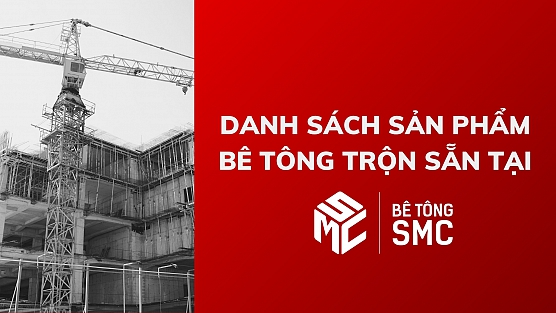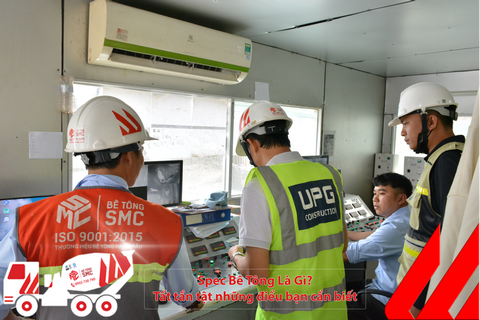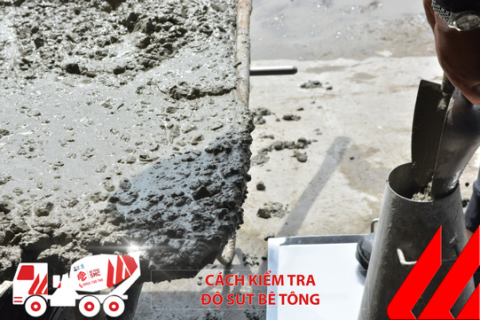Frequently asked Questions
Concrete engineering advice
Business contact
What is Commercial Concrete? Mixing Methods at SMC
Commercial concrete is a crucial construction material widely used in both building and mechanical industries. It is produced according to strict quality standards and serves projects that demand high uniformity and quality. In this article, we will explore commercial concrete and the mixing methods used at SMC (Saigon Production and Trade Joint Stock Company).
1. Commercial Concrete - Definition and Applications
Commercial concrete is a type of concrete produced through an industrial process, ensuring high uniformity and quality. It is utilized in construction projects such as bridges, buildings, roads, floors, and other structures. Commercial concrete not only meets technical requirements but also exhibits excellent mechanical properties, durability, and load-bearing capacity.

2. Quality Standards for Commercial Concrete
Commercial concrete must comply with stringent quality standards to ensure uniformity and safety during use. These standards include requirements for raw material composition, mixing ratios, moisture content, strength, and water resistance. Adhering to these standards ensures that the product meets technical specifications and performs well in construction projects.
Learn more: SIMPLE THINGS YOU MAY NOT KNOW ABOUT CONCRETE
Technical Standards at SMC:
Concrete products produced at SMC Concrete Plants are rigorously tested to ensure consistent quality, conforming to ISO 9001:2015 quality management standards. They also meet applicable standards such as Vietnamese Standards (TCVN), American Standards (ASTM), British Standards (BS), and other technical requirements from customers.
Types of Concrete Produced at SMC:
With extensive production experience and a professional team, SMC has supplied commercial concrete for various projects in Ho Chi Minh City and neighboring provinces. SMC continuously researches and improves the quality and variety of its concrete products to meet different technical demands, including:
- Conventional concrete
- Concrete for slip formwork
- Sulfate-resistant concrete (Type V)
- Self-compacting concrete (high flowability concrete)
- Waterproof concrete
- Low-heat concrete
- Prestressed concrete
- Concrete for bored piles and diaphragm walls
3. The Production Process of Commercial Concrete at SMC
SMC (Saigon Production and Trade Joint Stock Company) is a leading manufacturer of commercial concrete. The production process at SMC includes the following steps:
3.1. Raw Materials and Mixing Ratios
Commercial concrete at SMC is made from high-quality raw materials such as sand, gravel, cement, and additives. These materials are selected and mixed in specific ratios to ensure uniformity and mechanical properties that meet technical requirements.
[Standards for Sand, Gravel, Cement Input]
3.2. Mixing State and Process
Once the raw materials are prepared, the mixing process begins. Commercial concrete at SMC is typically mixed in specialized mixers to ensure uniformity and even distribution of components. The mixing process lasts for a specified period to achieve optimal uniformity and strength.
3.3. Quality Control and Uniformity Assurance
After mixing, the product undergoes quality control tests to ensure it meets standards and technical requirements. These tests include measurements of component composition, strength, viscosity, and water resistance. This ensures that commercial concrete from SMC is uniform and meets high-quality standards.
4. Benefits of Commercial Concrete
Commercial concrete from SMC offers numerous benefits for construction projects. Firstly, its high uniformity and quality ensure structural stability and durability. It also has excellent load-bearing capacity and water resistance, protecting structures from adverse environmental effects. Moreover, using commercial concrete saves time and effort during construction.

5. Applications of Commercial Concrete in Construction
Commercial concrete from SMC is widely used in various construction projects, including bridges, buildings, roads, floors, factories, and other structures. Using commercial concrete ensures uniformity and high quality in projects while meeting technical requirements and ensuring long-term performance.
Ready-mix concrete plays a crucial role in constructing projects with high uniformity and quality. The mixing methods at SMC adhere to strict quality standards and use high-quality raw materials to achieve the best uniformity and strength. When applying commercial concrete from SMC to construction projects, you can trust in the material's stability, durability, and performance.
Remember, using commercial concrete requires adherence to production processes and quality regulations. Learn about the standards and mixing methods for commercial concrete to ensure the success of your construction project.
You may also be interested: HOW CONCRETE IS MADE
Other news
Currently, ready-mix concrete is a top choice for many construction projects—both large and small—thanks to its convenience, consistent quality, and high construction efficiency. With extensive experience supplying commercial concrete for numerous key projects in the Southern region, SMC proudly offers a diverse range of ready-mix concrete products to meet the technical requirements of every type of construction.
A Comprehensive Guide to Concrete Specs – Everything You Need to Know
A Complete Guide to Concrete Specs – a set of technical parameters including concrete grade, slump, compressive strength, aggregate size, and mix ratio. This article helps you understand how to define, apply, and control concrete quality according to TCVN standards and practical construction conditions.
How to check the concrete slump
In construction and civil engineering, concrete slump test (or simple slump test) is the work performed at the construction site or in the laboratory that usually determines and measures the hardness, consistency of samples. Concrete before pouring concrete or casting maintenance, research or experiment samples.




